Living in Yangon comes with a lot of minor challenges – there is no one big challenge.
Fancy taking your legal skills overseas? Five lawyers working offshore tell how their careers are evolving away from Australian shores.
Yangon
KATHRYN THORNTON
Senior Associate, Allen & Overy
By Kate Allman
Car horns blast and exhaust fumes hover stagnant in the 88 per cent humidity as Kathryn Thornton squeezes out of a traffic-jammed taxi door at the Allen & Overy office in Yangon, Myanmar. It’s 8.30am and this Australian senior associate has already negotiated her first transaction of the day – a daily arbitration undertaken with local Burmese drivers over the cost of the unmetered cab fare to work. Today’s trip was a little pricier than usual on account of Thornton’s request for the air-conditioning to be turned on – an absolute necessity if you wish to arrive at work in the same showered, clean state in which you departed. Nevertheless, at 5,000 Burmese kyat (about $5.50 Australian) it’s a bargain ride by Sydney standards.
Only four years ago, air-conditioning – or the widespread availability of commercial taxis – was unheard of in Yangon. When Thornton arrived on secondment from the Sydney office of Allen & Overy in 2012, Myanmar was emerging, largely undeveloped, from 50 years of military rule.
“When I first arrived, there were no ATM machines and internet was barely workable, if at all,” says Thornton. “It was very difficult to make a phone call. Certainly, making an international call was almost impossible.
“I have witnessed significant change during my three and a half years in Yangon. The number of cars on the street has increased exponentially. On a superficial level, I’ve seen the introduction of many foreign brands to the market – people have iPhones, KFC is now in town, Pizza Hut has just opened up, and the larger multinationals like Unilever and Proctor & Gamble are everywhere.”
This recent commercial and infrastructure boom was initiated by dramatic political changes occurring from 2011. The military junta was dissolved, democratic leader Aung San Suu Kyi had been released from house arrest and was elected to Parliament in 2012, US Secretary of State Hillary Clinton visited Myanmar, and the European Union began to reduce trading sanctions against the country.
“Up until late 2011, Myanmar had been isolated from the international community for five decades,” says Thornton. “The relaxation of sanctions announced that the country was ready to reengage with the international community. That offered an abundance of opportunities for foreign investors.”
Savvy investors recognised an untouched consumer market in Myanmar that was still in its embryonic stages. It was an infrastructure-poor and energy-poor country – a feast for foreign businesses with an appetite to capitalise on those markets. Of course, that offered opportunities for lawyers who understood the local legal framework and could assist in the necessary transactions.
Thornton, 33, was one of the first Australian lawyers to explore these opportunities in the former capital Yangon in 2012. In 2010, she left her senior lawyer role at Mallesons (now King & Wood Mallesons) to join the newly-established Sydney office of Allen & Overy in the hope she could be part of its growing Asia-Pacific network. Launching offices in Ho Chi Minh and Hanoi in 2012, Allen & Overy appeared to Thornton as a career “stepping stone” towards working for a global practice in Southeast Asia.
“I was asked one evening, by email,” says Thornton. “My managing partner at the time knew I was looking to move north into our A&O offices in Asia at some point. In June 2012, I received an email from him that just said ‘Myanmar?’ in the subject line. I think two days later I was on a plane to Yangon.”
Thornton says she always has felt an “inexplicable pull” towards living and working in Asia. After high school she spent a gap year teaching English at a school in Nanjing, China, and, while studying a double bachelor of International Studies and Law at the University of Technology Sydney, she spent a year on exchange in Kunming in southwest China. Ever the high achiever, she subsequently won the final year university medal for academic achievement in her cohort.
Thornton says these experiences, as well as a few cross-border jaunts to Hong Kong under Mallesons, equipped her with an international understanding that helped her decipher Myanmar’s idly-drafted laws and quickly changing legal system. Unfortunately, no amount of legal knowledge has helped her overcome the practical challenges posed by the country’s developing communications infrastructure.
“Living in Yangon comes with a lot of minor challenges – there is no one big challenge,” says Thornton. “For example, last year there was a period in the monsoon season where we could just not get internet access between lunchtime and dinner time,” she says. “Power cuts are also frequent, particularly in the dry season. It can be quite frustrating when your client is expecting you to be performing to Sydney time frames or quality. They don’t understand unless they’ve actually visited.”
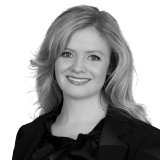 KATHRYN THORNTON, Senior Associate, Allen & Overy
KATHRYN THORNTON, Senior Associate, Allen & Overy
Thornton’s “short, six- to-12 month secondment” turned into a placement that lasted almost four years and led to the establishment of Allen & Overy’s permanent office in Yangon in late 2013. Her “big ticket” deal so far has been acting as lead lawyer in Allen & Overy’s work for Norwegian company Telenor on its successful bid for a telecommunications licence in Myanmar’s first internationally recognised public procurement process. She continues to be involved in the roll-out of Telenor’s network in Myanmar and agreed to shiver through a winter secondment in London to be closer to this client late in 2015. Despite having purchased a brand new winter wardrobe to survive the weather, she plans to return to Myanmar when her work in London is complete.
“My heart is in Asia, and that’s where I see my future,” says Thornton. “The Burmese people are just the most hospitable, welcoming people. They are lovely to work with and – it’s really hard to put into words – they have this vibe. The country is in the throes of significant political and economic change and the level of excitement is tangible.
“We [Allen & Overy lawyers] have had the opportunity to work closely on reviewing a number of significant laws that are currently going through the legislative approval process. That, as a lawyer, has been quite exciting; to have the opportunity to comment on and, in some way, shape change that is actually taking place. It’s an opportunity that very few other lawyers would get anywhere else.”
UK & Europe
KEN FOWLIE
Managing Director, Slater & Gordon, UK & Europe
By Kate Allman
It’s pitch black and the mercury hovers around freezing as Ken Fowlie completes his morning commute to the London office of Slater & Gordon at about 7.30am. Coasting through the frosty alleys of Chancery Lane, guided only by a flickering bicycle light, may seem like an uncomfortable commute to lawyers reading from their temperature-controlled Australian offices in high summer. For Fowlie, the ride is a welcome change to his regular mode of travel – the gruelling 24-hour flight between Sydney and London.
“I don’t know how many flights I took last year,” admits Fowlie. “It would be a fair few.”
In truth, Fowlie, 47, spent barely more than three weeks at a time in each city between January and August, owing to his pivotal role in a recent transaction between Slater & Gordon and British insurance company Quindell. He guided Slater & Gordon through its acquisition of Quindell’s professional services division in April 2015, winning his firm the single largest market share of personal injury claims in the UK.
The $1.3 billion deal was completed a few months before UK Prime Minister David Cameron declared war on “compensation culture” and announced sweeping reforms to limit damages claims in car crashes. Slater & Gordon shares plummeted by 54 per cent on 18 November after the company warned the change would affect plaintiffs’ rights. Despite this hiccup, Fowlie maintains that expanding into the UK market has been a logical progression for the firm.
“The insurance market in the UK is the second or third largest in the world,” says Fowlie. “Personal injury claims are a very prominent component of UK legal work and, given the work Slater & Gordon does, London is a terrific city to be situated in.”
Fowlie, who has worked for Slater & Gordon since he began his career as an articled clerk in 1995, headed to London in 2012 when he took a study leave of absence to complete a Masters in Leadership and Strategy at London Business School. When he returned to Sydney in 2013, Fowlie was asked to head Slater & Gordon’s Australian operations and, following the firm’s acquisition of Quindell in 2015, became Slater & Gordon’s Managing Director in the UK and Europe.
According to Fowlie, it is London’s handy proximity to Europe that coaxes Australian lawyers from their sun-kissed city to England’s grey legal districts.
“Why do people want to live in the UK when the weather is, let’s say, variable?” asks Fowlie. “Because it’s a gateway to the world.
“In the time it takes me to fly from Sydney to Melbourne I can go to cities from Lisbon through to Barcelona, Paris or Berlin. You name it. The opportunity that comes with that proximity is the great attraction.”
Despite the similarities you’d expect to exist between Australia and the UK in terms of culture and work practices, Fowlie warns that moving to London is not necessarily a simple adjustment for Australian lawyers.
“It is an easy error to assume certain things are universal, when many are culturally-specific,” says Fowlie. “The classic instance in London is where you go to the bar and ask for a beer, and end up with a sort of bucket [a pint] and think, ‘How did this happen?’”
Fowlie says there are subtle but important cultural differences that lawyers need to be aware of when conducting themselves professionally.
“The legal systems and working hours are very similar,” he says. “But there’s a formality to English society, still, which is quite different to what we might expect in Australia. As Australians we are sometimes expected to be quite brash and insistent. We might be a bit more certain about decisions and faster in the speed with which we reach decisions – but in the UK there is a tendency to talk issues through a bit more.”
As well as adapting to what Fowlie describes as the “unfalteringly polite” methods of British business, a successful cross-continental career demands a strong personal support network. Fortunately for Fowlie, since landing the new role his wife and two children, aged eight and 10, moved to London in August.
“Clearly, you can only do these sorts of jobs if you have a supportive network surrounding you,” says Fowlie. “And my wife is incredibly supportive. She is the primary raiser of our children and has pretty much been a single parent whenever I’m away. That has been an undesirable but necessary consequence of my job, and I couldn’t do it without that kind of support.”
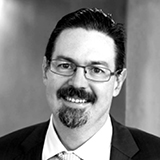 KEN FOWLIE, Managing Director, Slater & Gordon, UK & Europe
KEN FOWLIE, Managing Director, Slater & Gordon, UK & Europe
It is an easy error to assume certain things are universal, when many are culturally-specific. The classic instance in London is where you go to the bar and ask for a beer, and end up with a sort of bucket [a pint] and think, ‘How did this happen?’
Despite the welcome reduction in distance between his office and family home, Fowlie’s role continues to demand that he take numerous international flights – a necessity that is unlikely to change in the near future. In an effort to maintain his wellbeing across the many time zones, Fowlie has developed distinct routines for travel. He makes sure to take a walk or swim in the hotel at his destination and won’t check in to a flight without a pair of quality, noise-cancelling headphones.
“My routine for flying now is to have very low expectations,” says Fowlie. “Having gone through all sorts of advice and tips like, ‘When you land, make sure you don’t sleep’, ‘Change your routine when you get on the flight to the new destination’ – I’ve tried them all.
“Now I find the best way is to just sleep when you’re tired. When you’re not tired – don’t. Eat what you want to eat. Just try and roll with it.”
The Hague
JUDITH LEVINE
Senior Counsel at the Permanent Court of Arbitration at The Hague
By Dominic Rolfe
As an international lawyer, Judith Levine has witnessed her fair share of unusual scenarios. She delved into rocket science during a commercial dispute concerning a satellite that involved a witness who had been to space. She worked on what some dubbed the “Mackerel wars”, a dispute between the European Union and the Faroe Islands over their herring catch. She also worked on the largest ever arbitration case, the $50 billion arbitrations brought by former majority shareholders of Yukos Oil Company against Russia.
Asked to nominate one of the more interesting junctures, however, Levine, 40, cites her work as a registrar for the Permanent Court of Arbitration (PCA) in the Abyei Arbitration between the Government of Sudan and the Sudan People’s Liberation Movement/Army.
“It was one of the more novel types of cases,” says Levine, who is now Senior Legal Counsel at the PCA. “Our case took place before the South Sudan referendum on independence and in the context of a civil war that had lasted more than 20 years and with more than two million people dead.
“It wasn’t purely international – it was between a country and a movement within the borders of that state. It was high stakes in terms of the peace on the ground, and this case was totally open where most cases are conducted behind closed doors. More than 200 Sudanese tribesmen came, the diplomatic core came, it was one of the first international cases live webcast, all the pleadings are online and it had to be done in a very tight timeframe. It was extraordinary.”
Levine has chalked up eight years with the PCA in The Hague, an institution established in 1899 that today is an arbitral institution sitting at the juncture between public and private international law resolving disputes between states, state entities, intergovernmental organisations and private parties. Levine worked for five years as legal counsel, including one year as the PCA’s representative in Mauritius, with the most recent three years as Senior Legal Counsel.
Levine graduated with an Arts/Law degree from the University of NSW in 1999 with a major in French and the UNSW medal in law. Levine also was awarded the Michael Pandelis Award for greatest contribution to the life of the law school, was editor of UNSW Law Journal and President of the UNSW Law Society.
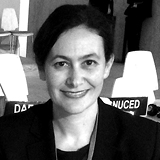 Judith Levine, Senior Counsel at the Permanent Court of Arbitration at The Hague
Judith Levine, Senior Counsel at the Permanent Court of Arbitration at The Hague
My time living and studying with people from all over the world was invaluable. It opens your mind to different perspectives.
Law has been a constant in Levine’s life. Her brother is a lawyer, her father is former NSW Supreme Court Justice and current Independent Commission Against Corruption Inspector David Levine, and her grandfather was Judge Aaron Levine. From a young age she had been thinking about international law.
“When I was a kid, I thought I wanted to be a diplomat working in areas of public interest and travelling – it all sounded pretty exotic,” she recalls.
Levine completed a Masters at New York University, a city she had fallen in love with while visiting in the 1990s, before moving back to Australia to complete an associateship at the High Court with Justice Michael McHugh and nine months as an assistant adviser to then Attorney-General Daryl Williams.
“It was a fantastic year at New York University,” says Levine. “There were people from all over the world, the subject matter was fascinating, it’s a very dynamic law faculty and the city is so much fun. Substantively, that’s also where I started learning international law. But it was no let down to come home. You couldn’t get more interesting work than working with a High Court judge and then in parliament seeing how laws are made.”
Still, the overseas sirens kept calling. An opportunity through NYU to work at the International Court of Justice proved irresistible. She spent a year there working as an associate for three judges. It’s also where she met her husband, fellow international lawyer and now Greenpeace Investigations Adviser Jonathan Struggles, who was working as member of the team prosecuting Slobodan Milosevic at the International Criminal Tribunal for the former Yugoslavia.
“We met in the first week that I was in The Hague,” she says. “And a year later, I went back to New York because I hadn’t got the city out of my system.”
Levine worked in Manhattan as a senior associate at White & Case, in a mix of commercial and public arbitration. She also did pro bono work on asylum and torture cases while gorging on theatre and cinema and culture. “You feel like you’re in the capital of the world,” she says. “I went to a black tie gala dinner where Salman Rushdie was speaking and stepped into an elevator with Kofi Annan.
“Just taking the subway in New York, there are people of every colour and nationality and ethnicity and music tastes. You don’t have to try to get that sort of world exposure — you just need to walk down the block. I don’t miss it now I’m in The Hague, but I’m very glad I lived there.”
After five years in New York, Levine and Stuggles moved back to The Hague and now have three children. They initially planned to live there for a year but have now added seven years.
“That’s the experience of a lot of people who come to work in The Hague,” she says.
“It’s such an easy city, there’s such interesting work and being in the heart of Europe, everything’s very accessible. We live on our bikes. I bike to work even though it’s a five minute walk — but I drop my kids to school on the bike on the way. It’s a lovely city to bring up small children in. I’d love to come back to Sydney but we’ll be here for the short term.”
Just as Levine’s life has expanded, so has the PCA, which has more than quadrupled in size since she started. The cases, such as the dispute between the China and Philippines over the territory in the South China Sea she is currently working on, generate huge geopolitical interest as well as a rich environment for issues of international law.
The PCA also has observer status for the United Nations Framework Convention on Climate Change, meaning Levine attended the 2015 Paris Climate Conference in December and helped organise a side event on climate change-related disputes.
“I spoke at a conference aimed at arbitration lawyers and then went to meet with the participants that the PCA administers,” she says. “Where I work now is the ideal mix of public interest and private international law. It’s still as exciting and as intense as the work in my New York firm. I love it.”
But it’s not just working in an area with immense global implications that animate Levine – it’s assisting in cases with profoundly human outcomes.
“One of the good things about law,” says Levine, “whatever and wherever you practice, whether it’s a satellite case in Japan or a pro bono case for an asylum seeker from Togo in Queens, you have to become very familiar with the context and facts of the case. That’s the same whether it’s a big international dispute or a small commercial matter. It varies from case to case, which is why people enjoy the practice of law.
“I’m constantly working with people from all different parts of the world and my time living and studying with people from all over the world was invaluable. It opens your mind to different perspectives.”
New York
ANDREW CORKHILL
Partner, Quinn Emanuel Trial Lawyers, New York
By Dominic Rolfe
When Andrew Corkhill took a job with a New York law firm in 2009, he, like most other people, had hardly ever heard of a collateralised debt obligation or a credit default swap. He’d read Michael Lewis’s bestselling book Liar’s Poker on the inner workings of Wall Street, but the more arcane details were a mystery. The aftermath of the global financial crisis changed all that. It wasn’t long before Corkhill had an intimate knowledge of structured finance products and found himself sitting in the eye of the financial storm.
“I worked representing American Insurance Group (AIG) following their bail-out,” Corkhill says. “There was a lot of litigation and that story was continuously front-page news. For a young lawyer, seeing your case above the fold on page one of The New York Times was reason enough to get up and come to work.”
It was work that the entire world was watching. Corkhill was involved in depositions of key US Federal Reserve and Treasury officials who orchestrated the US Government’s response to the financial crisis.
“I was privy to all of the key conversations and emails concerning the major bankruptcies and bail-outs in 2008,” he says. “There was definitely a moment where I looked around and thought, ‘Wow, this is pretty crazy’.”
Corkhill, who graduated with an Arts/Law degree from Sydney niversity in 2006 and has a Masters in Law from Harvard, is a partner at Quinn Emanuel Urquhart & Sullivan. He and his wife, Madeleine Selwyn, a lawyer who used to work at Clayton Utz in Sydney, live on the west side of Manhattan in Chelsea with their one-year-old son, Beckett Before his firstborn arrived, the couple soaked up the city’s famous lifestyle.
“New York is a great place to live and practise,” says Corkhill. “It’s genuinely a 24-hour city so even if you work till 1am, the city is still humming. You can go to a jazz bar, take in a show then go out to eat. I work a lot longer hours here than in Sydney but I also have a better social life. I just sleep less.”
These days, family commitments mean he’s one of the earliest in the offices. “New York lawyers famously start late and work late,” he says. “I used to get to the office at 10am or 10.30am and be there until whenever I needed to be. Now I’m in there at 8am and leave by 6pm for my son’s bath and bedtime and I work from home if I need to.”
The 33 year old considers himself an “American lawyer with an Australian background”. But the dream of working there very nearly didn’t happen. In fact, his path to the Big Apple seems paved with serendipity.
Born and educated in Canberra, Corkhill was the first in his family to become a lawyer. He graduated with first class honours in law and the university medal in philosophy. It’s a combination he believes helps his work.
“Philosophy teaches you how to intellectually engage with a problem and reason through it using logic,” he explains. “I think ideally that’s what you’re trying to do in law as well, especially in litigation.”
After working as an associate with Clayton Utz in Sydney in 2007-2008 and as a clerk with Justice Peter Graham at the Federal Court, he took up a Masters of Law at Harvard University, with a view to picking up a job in a New York firm.
His timing, however, could not have been worse. “I started at Harvard the week after Lehman Brothers filed for bankruptcy,” he says. “That was the beginning of the crisis over here so a lot of the New York law firms were battening down the hatches.”
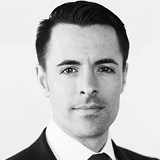 Andrew Corkhill, Partner, Quinn Emanuel Trial Lawyers, New York
Andrew Corkhill, Partner, Quinn Emanuel Trial Lawyers, New York
“New York is a great place to live and practise. It’s genuinely a 24-hour city so even if you work till 1am, the city is still humming. You can go to a jazz bar, take in a show then go out to eat. I work a lot longer hours here than in Sydney but I also have a better social life. I just sleep less.”
Whereas before 2008, Australian lawyers had had a golden run getting jobs in New York firms, Corkhill spent six fruitless months interviewing for a position. He and his partner began to consider leaving New York. But the universe would serve up another moment of good fortune.
“I went to a talk at Harvard by Kathleen Sullivan, one of the named partners at my firm,” he says. “She blew me away. I’d never heard of her litigation-only firm but afterwards I approached her and was fortunate enough to get a job.
“It was more luck and being in the right place at the right time, but it was also a huge relief. I got the job in June 2009 and, if I hadn’t, we would likely have been gone from New York a month later.” Corkhill encountered a couple of major professional differences in legal practice. American litigation, he says, is much more nakedly aggressive and adversarial.
“The practice of litigation in Australia has the veneer of civility to it, whereas the nature of pleadings in the US are much more full-throated,” Corkhill says. “We’ll regularly make allegations in court documents and filings here that you’d never get a barrister to sign on to in Australia. The baseline expectation is that you run at a much higher level of aggression than back home.”
The other difference is more subtle, he says. “There is an idea that as a non-American, people think you won’t quite get how to litigate here, that unless you’ve grown up in the US and are familiar with its cultural quirks, you won’t quite get it. I faced a lot of scepticism when I first arrived.”
In 2014, Corkhill was named a “rising star” in the field of securities litigation by Super Lawyers and was made partner.
“They put me up for it and gave me a chance to see what I could do,” he says. “In contrast, I’ve got friends at home now in the big firms in Sydney and Melbourne where it seems that partnership tracks are continuing to get pushed out and people aren’t being considered for partnership until they’re 13 or 14 years in.
“I owe a lot to luck and fortunate timing. Anyone who doesn’t recognise that there’s a significant component of chance or serendipity about their life and career is not being very honest
with themselves.”
Working as a lawyer in New York involves a different social environment, he says. “It’s a wonderful, fast, exhilarating place to live; the pace of life is like Sydney times one hundred. But I now operate at New York speed. When I come home, I get a bit twitchy.”
Still, the young family expects to return to Sydney some time in the future.
“At the moment we’re still really enjoying living in New York, and I doubt that will ever cease to be the case,” he says.
“Nevertheless, we’d ultimately like to raise our kids in Australia. Quinn opened an office in Sydney recently, which is doing really well, so it’s nice to know we have an outpost there if and when we decide to come back.”
Hong Kong
RICHARD MAZZOCHI
Head of Banking and Finance, King & Wood Mallesons
By Kate Allman
The King & Wood Mallesons (KWM) office in Hong Kong is a monolith of glass and steel, towering high above the concrete jungle that is one of the busiest commercial districts in the world.
One might expect the king of such a striking commercial castle to impose the same steely presence on his colleagues and professional rivals. Yet KWM senior partner Richard Mazzochi is known to always conduct business with a friendly Australian disposition.
“Generally speaking, the very Australian ‘friendly, open and smiling’ is the way to go,” says Mazzochi.
“Presentations in China can be very formal, but I could never go into any sort of a formal pitch pretending to be anyone other than who I am. It makes life a lot easier.”
Mazzochi first brought his smiling Australian manner to Hong Kong business tables in 2002, when his firm, formerly Mallesons Stephen Jacques, began to send more partners to its Hong Kong headquarters to increase its presence in Asia.
Hong Kong was growing as a key Asia-Pacific legal hub and Australian firms were hustling to get a foothold in the region.
Within a decade, Mazzochi was part of the team that implemented the merger between his Australian firm and one of the most established Chinese law firms in the world at the time, King & Wood.
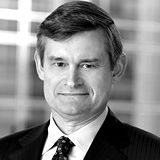 RICHARD MAZZOCHI, Head of Banking and Finance, King & Wood Mallesons
RICHARD MAZZOCHI, Head of Banking and Finance, King & Wood Mallesons
Hong Kong provides the same kind of opportunity as it would if you were going to London or New York, but, importantly, it provides you with an opportunity in the region that you come from.
“That was the era when the big Australian law firms were looking to merge with international firms,” says Mazzochi, 57. “I was at a stage of my career where I thought I was just doing the same thing and I wanted a bigger challenge, so I put my hand up.”
Growing up in The Rock near Wagga Wagga, Mazzochi caught the travel bug young. The eldest of four children, he was sent to boarding school at Chevalier College in the Southern Highlands.
“It was that education that gave me the confidence to go on to travel and work overseas,” Mazzochi reflects.
Fresh out of Sydney University with an economics/law degree, Mazzochi undertook his first international work in Singapore and then London, working in banking and finance for Allens in the 1980s. When he returned to Sydney he was enticed to Mallesons, as it was then known, by what he saw as its exciting overseas expansion strategy.
“Mallesons has always been well-versed in working overseas, and I had missed the excitement of working internationally,” Mazzochi recalls.
Despite having years of international experience under his belt, volunteering to be part of Mallesons’ Asian expansion soon pitched Mazzochi into the most intimidating test of his career.
“When I came to Hong Kong I had to sit for a conveyancing exam,” recalls Mazzochi. “I’ve always been a banking and finance lawyer, and property law was an area in which I had very little experience. It was intimidating because no Mallesons partner had ever failed the exam.”
Mazzochi scraped through and gained his Hong Kong practising certificate, but the challenge of adapting to a legal system using languages he didn’t speak continued to test him. “Case names in Hong Kong are a number of Chinese names,” he says. “Often there are three Chinese names versus three Chinese names. It’s initially quite difficult to comprehend.”
Having said that, Mazzochi adds there are opportunities for Australian lawyers regardless of their language skills. Don’t make the mistake of assuming business people who choose to speak Mandarin can’t understand your English, warns Mazzochi – they usually can.
A core practice area for Mazzochi is debt capital markets. Chinese companies and their offshore subsidiaries tend to issue debts in the form of bonds or notes to foreign investors in Hong Kong, attracted by customarily lower interest rates in China. In November last year, Mazzochi and his partners advised China General Nuclear Power Corporation (CGN) on a bond offering of $US500 million, a significant offering for one of only three People’s Republic of China (PRC) enterprises authorised to have a controlling interest in nuclear power projects.
“The work we do is so international – every day we are working on transactions that are governed by Hong Kong law or English law, or PRC law,” says Mazzochi. “And we are working in a number of different jurisdictions. One day it might be Singapore, the next it might be China. It’s always different and that’s great fun, but it’s also challenging in that you’re never completely certain about things.”
Although mastering the work has been a challenge, Mazzochi has found adjusting to the Hong Kong lifestyle a breeze. There is a large, welcoming expat community living in Hong Kong, and English is spoken in most places, he says. Hong Kong also boasts large areas of parkland, which regularly encourage Mazzochi to adapt his old lunchtime running route around Lady Macquarie’s Chair in Sydney to a new setting on the banks of Victoria Harbour. He adds that with a number of excellent international schools catering to the expat population he has found it a terrific place to raise two children with his wife.
“It’s a very exciting place and there’s a lot to do here,” says Mazzochi. “Shopping and going out, travelling, holidaying. It’s an overnight flight to Sydney, but it’s also an overnight flight into London. The buzz, the energy and the vitality of the place and its international feel is intoxicating.”
Although Mazzochi jets back to Sydney every six weeks to attend KWM board meetings and visit his grown-up children, he hopes to see out the balance of his legal career in Hong Kong. He says the wealth of opportunities for Australian lawyers in the region is too good to pass up.
“Hong Kong provides the same kind of opportunity as it would if you were going to London or New York, but, importantly, it provides you with an opportunity in the region that you come from,” he says.
“Australians are outgoing, friendly and easy to work with and they’ve got real expertise, which, in my experience, is as good as anyone in the world.”




